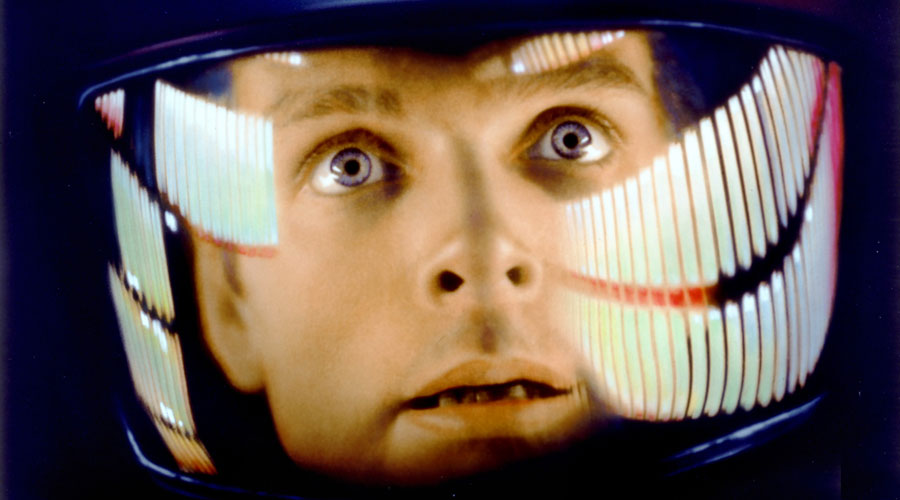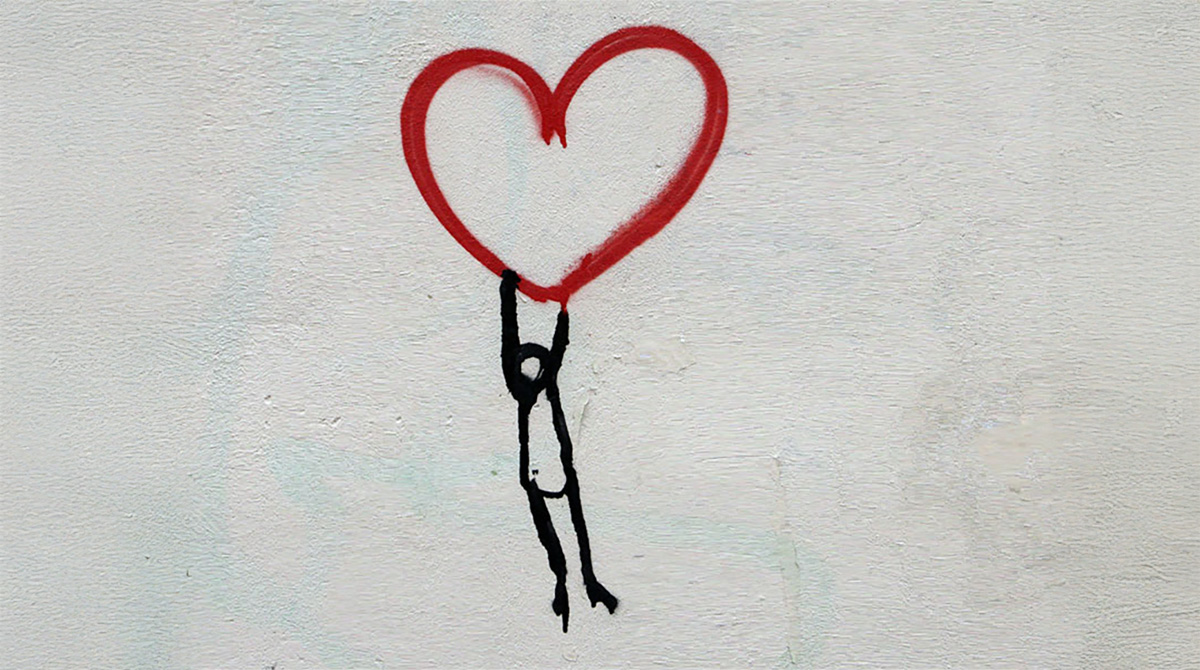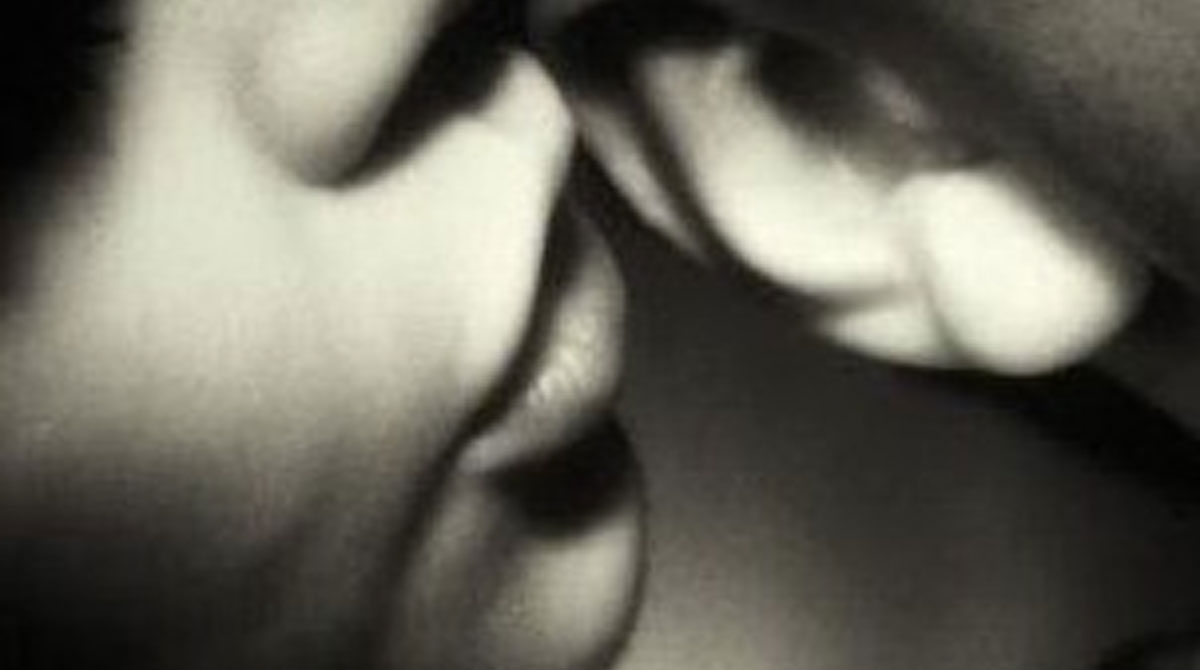2001: A Space Odyssey: 99 Science Fiction Films You Must See
So what is there left to say about 2001: A Space Odyssey that has not been said already? There have been books and documentaries, scholarly papers and entire websites devoted to deconstructing and analyzing this film’s themes and symbolism and importance to cinema. It is constantly considered one of, if not the, greatest science fiction films of all time. So what do I bring to the table that dozens of other, probably much smarter people haven’t already said?
Everything.
The beauty of 2001 is that there is no one interpretation, there is no right explanation. The film is ambiguous; you bring to it your own understanding. It is unique in cinema in that it does not attempt to explain to you its meaning; the film simply lets the images speak and you the viewer needs to make what you will of them. It does this unapologetically.
For many who dislike the film this is the considered its major flaw – the film is too slow and does not explain what is happening. For those, like myself, who love the film this is its greatest asset. It is what keeps the film fresh. I personally have seen this movie, oh a dozen times or so and at different points in my life it has meant different things.
When I was really young and saw this for the first time it was just a really weird thing, fascinating but weird.
As a teenager I thought it was a psychedelic experience, something to be witnessed on the influence of something or other. A real trip.
In college I knew it to be a deconstruction of man’s dependence on machines and the removal of our primal nature to a more robotic like state that could only be changed by disconnecting ourselves from the machine.
Now as I watch it I find myself thinking it is a metaphor for a spiritual journey; albeit a humanistic not religious one but in the tradition of eastern belief. The removal of self to experience the infinite.
None of these interpretations are correct and at the same time they are exactly what the film is about. And there are many, many more interpretations to be gleaned from this film. Not to mention the one that states that the film is a tedious piece of tripe that doesn’t explain itself because there is nothing to explain; it’s just a pseudo-intellectual bore. Obviously I don’t feel that way but there are those who do and I can actually understand why. It is not an easy film to like.
Regardless of which camp you fall into it there is no denying that the film is a technical masterpiece. The visuals, the attention to detail, the music, the understated acting – everything about the film is precise and meticulous. And its influence on the genre and movie making in general is immense.
What Is It?
Way back in 1965, coming off the success of his film Dr. Strangelove, director Stanley Kubrick decided to make what he said would be the first great science fiction film, believing that a great or even good scifi film had never been made. (I personally believe this is a bit of an overstatement, there were many good and even great scifi films before ’65, but Kubrick was opinionated to say the least and if that was his motivation to make a great film than who am I to argue.) Kubrick was a notorious perfectionist. He often made his actors do multiple, sometimes dozens, of takes and oversaw every aspect of the process from the planning to the cinematography all the way to the editing. By all accounts this made him difficult to work with but at the same time the results were spectacular.
This attention to detail and meticulous filmmaking came to fruition and arguably yielded its greatest result in 2001: A Space Odyssey. Kubrick spent years gathering the best special effects designers and engineers to produce breathtaking visuals that still hold up well today. He commissioned massive circular sets that distort the frame and make the scene seem off balance, never giving the viewer a sense of being grounded, as if we were tumbling through space with the actors. He brought in scientific advisers to make sure everything you see in the film realistic. It was futuristic yes, but not impractical. And he brought in renowned author Arthur C. Clarke to co-write the script based on one of his short stories.
All of these decisions make the film a real marvel in filmmaking.

2001: A Space Odyssey (1968)
Stanley Kubrick
“Look Dave, I can see you’re really upset about this. I honestly think you ought to sit down calmly, take a stress pill, and think things over.”
– HAL
What’s the Story?
Way back at the Dawn of Man our pre-human ancestors are living lives nasty, brutish, and short when one day a black monolith appears in a clearing. The ape-men are hesitant at first but eventually approach it and give it a feel. This apparently does something to them as a little while later one of the ape-men finds a heavy bone and after a bit of a think realizes it could be used as a weapon. This works well and the pack has some meat for dinner after taking down a tapir. Taking it a bit further the pack tries out the new weapon technology on a rival group at the local watering hole to stunning results. Dominance insured the main ape-man triumphantly throws the bone in the air.
Jump cut to millions of years in the future where we find a man riding a shuttle to an orbiting space station. The man we find out is Dr. Heywood Floyd sent to investigate a large black monolith on the moon. Of course this is a big secret and Dr. Floyd feigns ignorance when he meets a Russian dignitary on the station and advises more secrecy when later giving a briefing to his staff. He then heads off to the moon.
On the moon Dr. Floyd and several others examine the monolith and try to figure out what the hell is that thing and figure oh well, better get my picture with it; however when Dr. Floyd touches the monolith it emits a high pitched signal directed at Jupiter.
Jump to several months later and we find the crew of the Discovery on their way to Jupiter. Of the five crew members three are in cryosleep while the other two, Frank Poole and David Bowman, are assisted by the ship’s super-computer HAL 9000.
Through the course of daily operations we find that the crew does not know all the details of the mission since it has been deemed super top secret; a fact that makes HAL seem jittery. Bowman and Poole dismiss this at first since he’s just a machine but become concerned when he seemingly begins to make mistakes; something his type of computer has never done before.
They have a secret discussion about disconnecting HAL and are unaware that the computer is actually reading their lips. On a routine maintenance job outside the ship HAL kills Poole, turns off the cryosleep chambers of the other three and refuses to let Bowman back on. Bowman does manage to get back aboard with a nifty trick with explosive bolts and disconnects HAL in a surprisingly moving scene.
When HAL is disconnected a recorded message by Dr. Floyd begins to play telling Bowman the details of the mission. They are to rendezvous with a giant monolith orbiting Jupiter.
Upon arrival Bowman takes a shuttle and seemingly “enters” the monolith and has an extended light show followed by a surreal encounter with himself at different moments in his life each time progressively aging. At his moment of “death” Bowman is transformed to gestating fetus and orbits the Earth.
Why See It?
Well is my introduction and synopsis don’t peak you curiosity then maybe this isn’t for you. That being said you should see it if for no other reason than it is a beautiful thing to look at. And with TVs the size that they are you can really experience this in the way that it was meant to be seen, big. It is a classic of science fiction and a truly great movie experience. If you let yourself go and allow it to engulf you watching 2001: A Space Odyssey can be a glorious thing. Think of it as a meditation of life, the universe and everything. And bring your own interpretations to it, make it your own. I think you will be surprised what you will come away with.
Final Thoughts
I first saw 2001 on TV at my grandfather’s house. I remember sitting on the floor coloring or some such thing so I guess I was pretty young. My grandfather was in his chair reading the paper or doing a crossword. The TV was just on like background noise. Little by little my attention went from what I was doing to the TV till I was just engrossed by what I was seeing; mesmerized. I remember looking back to my grandfather and he was staring over his paper head cocked ever so slightly with a very confused look on his face. When finally the strange psychedelic ending came and the Star Child floated over Earth he said in a loud voice, “Jesus Christ what the hell was that?” I didn’t know what the hell that was, but I knew I liked it.
And I’ve been trying to figure it out ever since.
originally published Jun 1, 2015












Likhon chowdhury says:
Conor says:
Andy Garcia says: